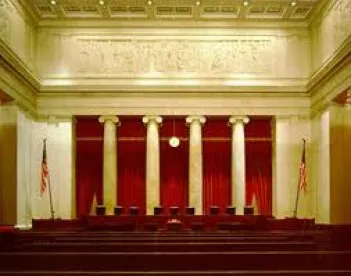On April 3, 2017, the United States Supreme Court in its decision on McLane Company, Inc. v. Equal Employment Opportunity Commission, No. 15-1248, U.S. Sup., ruled that a district court’s decision to quash or enforce an EEOC subpoena should be reviewed by the appellate court for abuse of discretion. This decision harmonizes the U.S. appellate courts, as the Ninth Circuit previously was reviewing a district court’s decision on an EEOC subpoena de novo, assessing the factual evidence of the case and making a legal determination without regard for the findings by the court below. Thus, reviews by all U.S. appellate courts of a district court’s ruling on the enforceability of an EEOC subpoena will now be focused on the district court’s alleged abuse of discretion with discretion given to the district court’s factual findings. Based on the McLane decision, employers now looking to challenge the enforceability of an EEOC’s subpoena no longer have to be concerned about the appellate court “second guessing” the district court’s decision although such district court’s orders will be harder to overturn on appeal based on the abuse of discretion standard.
Recent Supreme Court Decision
The issue in McLane stems from an EEOC investigation and complaint against McLane Co. regarding sexual discrimination. As part of the investigation and after McLane Co. had voluntarily disclosed information to the EEOC, the EEOC issued an administrative subpoena requiring McLane Co. to turn over certain withheld information. When McLane Co. refused to comply with the subpoena, the EEOC filed a subpoena enforcement action with the United States District Court, District of Arizona. The district court ultimately granted a portion of the EEOC’s request for information, but found that certain information sought was irrelevant to the sexual discrimination complaint. The EEOC appealed the Arizona district court’s decision. After reviewing the issues on the scope of the EEOC subpoena on its own, the Ninth Circuit found that the district court made an error in finding that certain withheld information by McLane Co. was irrelevant.
In Justice Sotomayor’s opinion, the Supreme Court in McLane held that the Arizona district court’s decision to enforce or quash an EEOC subpoena should only be reviewed for abuse of discretion. The Court noted that the “longstanding practice of the court of appeals in reviewing a district court’s decision to enforce or quash an administrative subpoena is to review that decision for abuse of discretion.” The opinion stated that whether to enforce a subpoena based on the relevance of the evidence sought or whether the subpoena is unduly burdensome in light of the circumstances are “well suited to a district judge’s expertise.” It also held that a “district court deciding whether evidence is ‘relevant’ under Title VII need not defer to the EEOC’s decision on that score; it must simply answer the question cognizant of the agency’s broad authority to seek and obtain evidence.” Thus, the Ninth Circuit’s judgment was vacated and the case remanded.
Practice Point
The McLane decision helps clarify the U.S. appellate court’s role with respect to reviewing a district court’s determination as to relevancy of an EEOC subpoena. An employer can no longer look to the Ninth Circuit to issue its own de novo analysis of the EEOC subpoena; instead, any challenge on appeal must simply focus on the district court’s alleged abuse of discretion. Thus, a ruling from the district court will be more difficult to overturn on appeal based on the abuse of discretion standard, though without the prospect of de novo appellate review, appellate costs will be lower.
While the McLane decision most directly impacts those appeals of district court rulings on EEOC subpoenas in the Ninth Circuit, there is a greater impact on judicial review of district court rulings on the enforceability of EEOC subpoenas. Some argue in general that district courts give more deference to the EEOC in enforcing a subpoena, but this perception may now change with the Supreme Court stating that there is not a “double deference” to the EEOC that the district court must uphold when addressing the enforcement of an EEOC subpoena. The decision in McLane clarifies that simply because the EEOC has broad authority to seek evidence does not automatically mean that granting the EEOC’s request for documents should be considered a fait accompli. The underlying district court’s ruling in McLane found that the EEOC’s subpoena was overbroad and limited in scope. The Supreme Court’s ruling in McLane supports that employers still can challenge the breadth and scope of an EEOC subpoena. The McLane decision will not likely change or impact EEOC subpoenas, but it does demonstrate that employers’ challenges to such subpoenas can be sustained.



 />i
/>i

